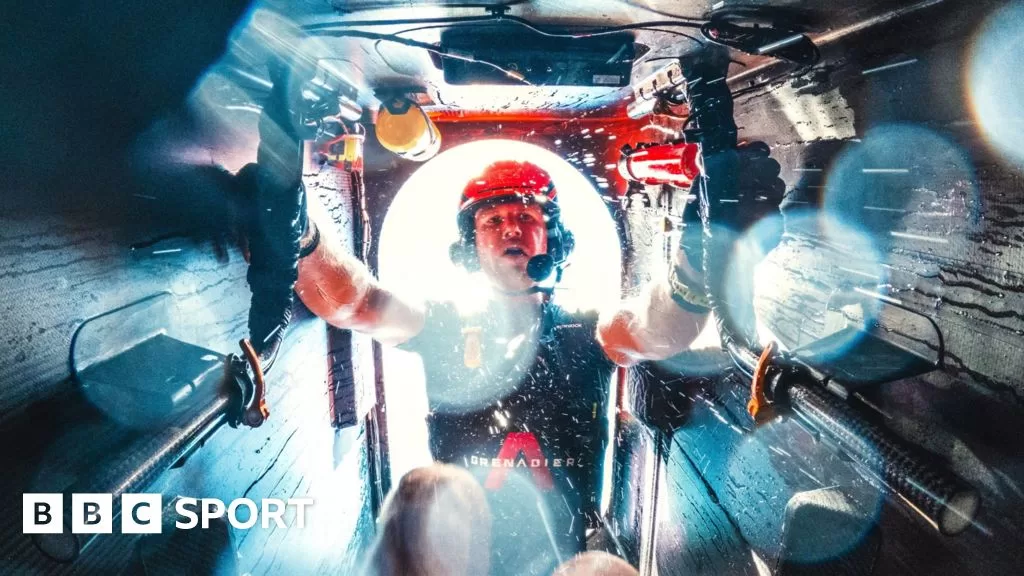The races take place across head-to-head events that are split into two parts.
The first part – the Louis Vuitton Cup – determines which of five challengers will face this year’s defending champion Emirates Team New Zealand in the second, the America’s Cup itself.
Races take approximately 25 minutes and this year start in August and end in October.
Endurance is the key metric for cyclors, who need to be able to consistently produce a high wattage during the races themselves and maintain their form across 10 weeks.
“We just want a huge reliable engine for the three months that we’re going to be racing,” Van Velthooven says.
“Big days are big days and easy days are still big days because they still need heaps of power. It’s relentless.”
The UK’s Ineos Britannia team, led by Sir Ben Ainslie, might not have recruited professional cyclists to their crew like some of their rivals but they have the next best thing – an affiliation with the Ineos Grenadiers cycling team, formerly Team Sky and winner of seven Tours de France.
Matt Gotrel is part of Ineos Britannia’s crew. This year will be his second America’s Cup, but his first as a cyclor rather than grinder. A former Olympic gold medal-winning rower, having been part of Great Britain’s eight at Rio 2016, Gotrel has found it a “big challenge” to train a different muscle group, even if recreationally he considered himself a cyclist already.
“As rowers, we had an upside-down pyramid [body shape] before, but it’s flipped around now,” Gotrel says.
As grinders, his crew would aim to produce 400 watts of power over 20 minutes. As cyclors they are now “well north of that”.
Training for the past two years has predominantly taken place on the road or in the gym, rather than on water. Volume blocks can consist of four to six-hour-long rides, three times a week, interspersed with high-intensity intervals on a static bike and weight training.
Gotrel, from Cheltenham, Gloucestershire, compares powering the boats in a race to a cycling time trial, but with repeated sprint efforts throughout.
“You want to have a really good aerobic base where you can sit at as high a power as possible without producing too much lactate, and then you have your big spikes and need to be able to recover from those,” he says.
The connection to Ineos’ cycling team has been a “massive” resource for Gotrel and his fellow cyclors, enabling them to share training and nutritional insight on a training camp in Spain together.
“I had a chat with [sprinter Elia] Viviani about some sprinting technique, and then there are Filippo Ganna and Dan Bigham who have been really good on some of the strategy and fuelling things and what they did to push on the hour record,” says Gotrel
